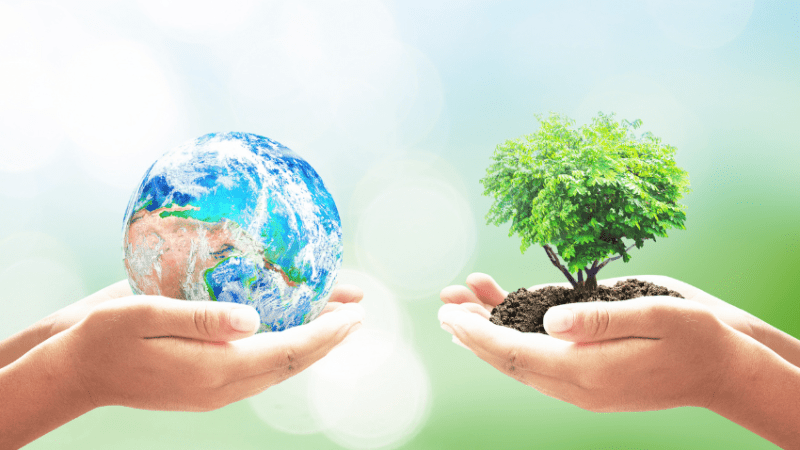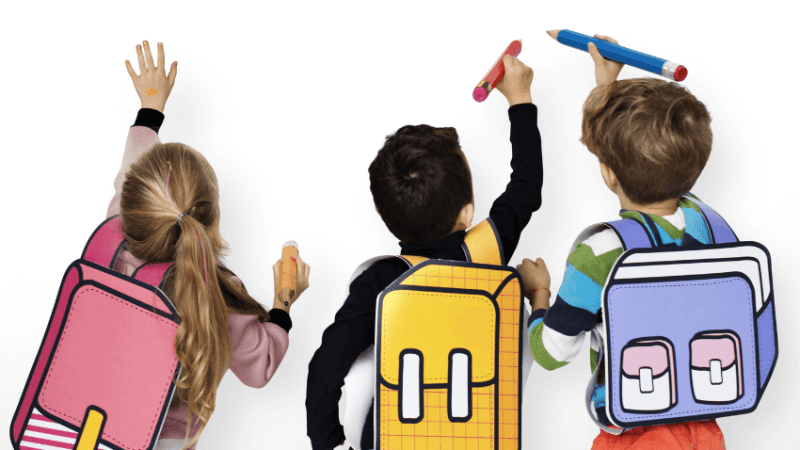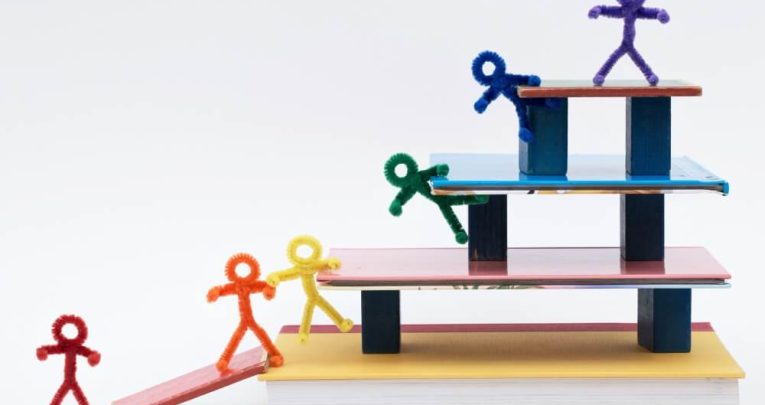World Ocean Day activities – Fantastic primary resources for 2025
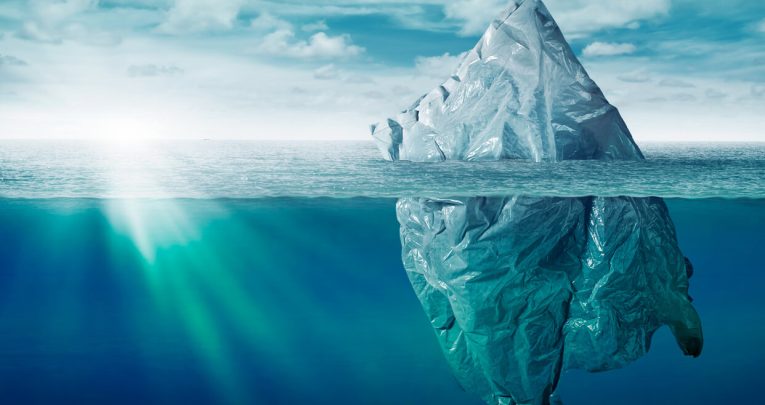
Celebrate World Ocean Day by teaching children about the amazing worlds that lie beneath the waves, and why they’re so important…

- by Teachwire
- Classroom expertise and free resources for teachers
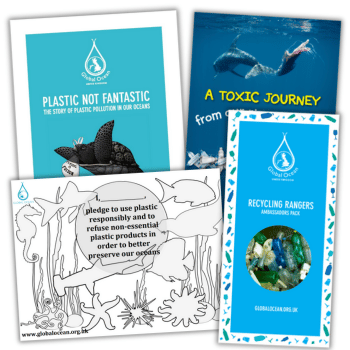
Kids make amazing ocean advocates. These World Ocean Day activities will help your pupils learn about the wonders of the seas and their connections to marine life…
We also have resources for:
- Earth Day (22nd April)
- World Environment Day (5th June)
Table of contents
What is World Ocean Day?
World Ocean Day calls for collective action for a healthy ocean and a stable climate. It’s about creating a better future with an abundant ocean and a stable climate, by working together.
The theme for 2025 is ‘Catalyzing action for our ocean and climate’.
When is World Ocean Day 2025?
World Ocean Day takes place on 8th June every year. That’s a Sunday in 2025 so if you’re celebrating in school, you may want to do so slightly before or after the official date.
World Ocean Day activities for schools
Plastic in the ocean marine conservation resources
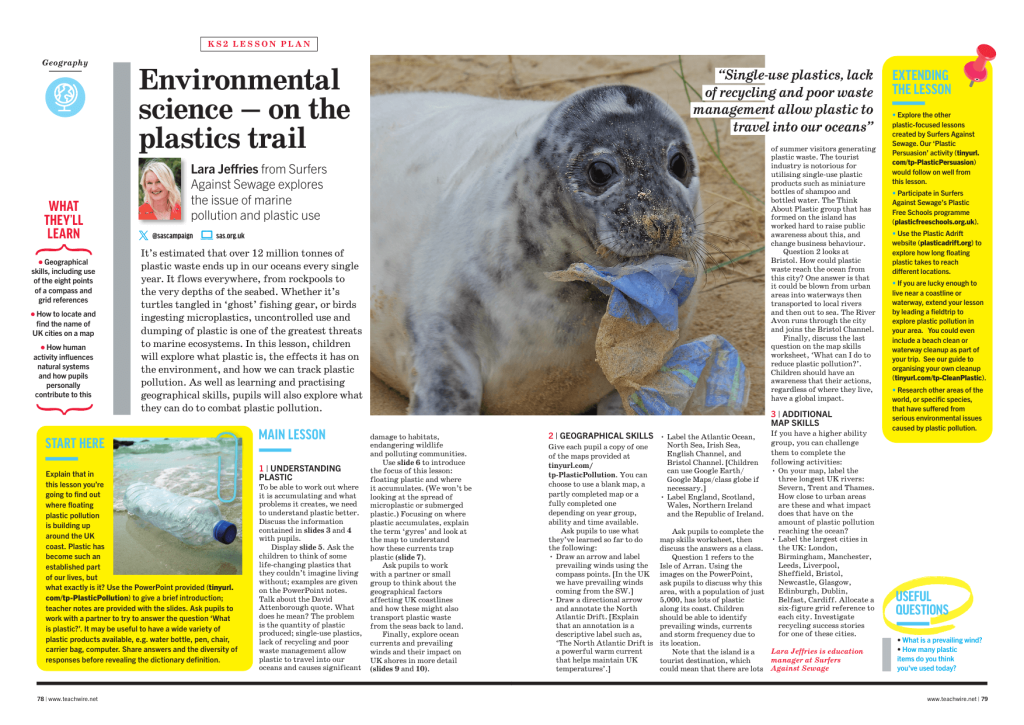
Use this free KS2 plastic pollution lesson plan to explore the issue of marine pollution and plastic use. Children will explore what plastic is, the effects it has on the environment, and how we can track plastic pollution.
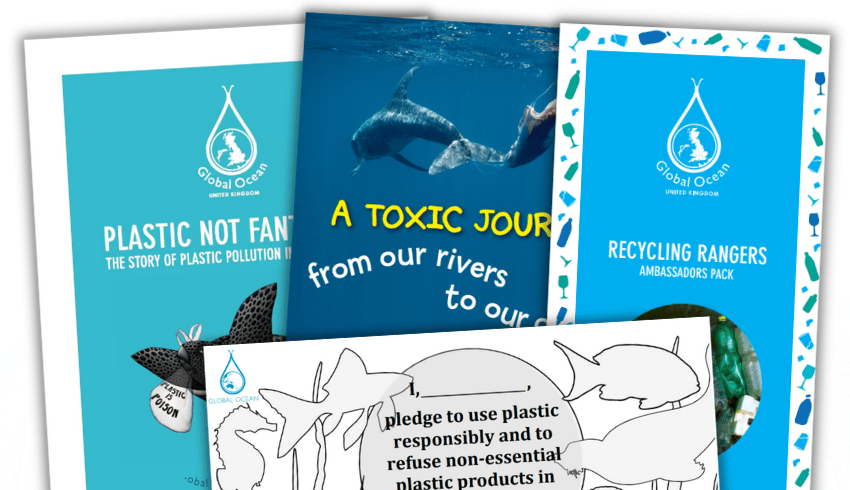
This engaging World Ocean Day activities pack is designed for KS1 and KS2 and offers activities to educate students about plastic pollution in the ocean.
It covers topics such as how plastic affects marine habitats, its impact on marine species and human health, and ways to combat it.
The pack includes lesson plans, posters, art activities and a Recycling Rangers programme to empower students to take action against plastic pollution in their communities.
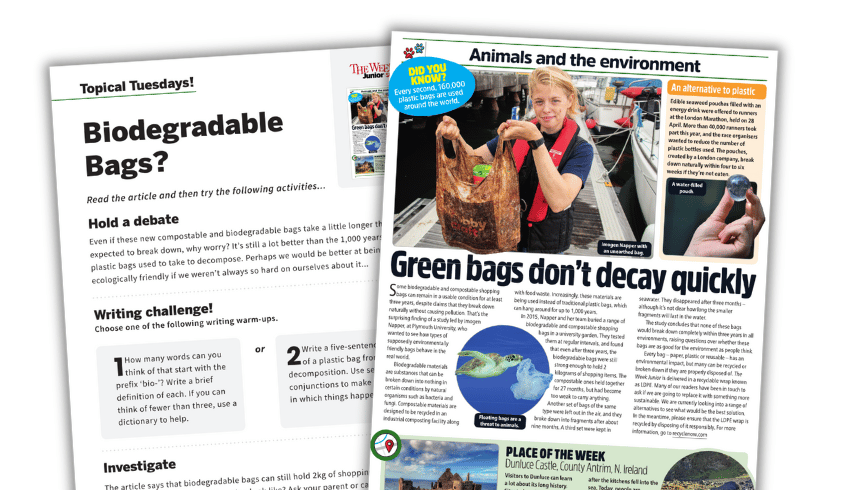
Still on the theme of plastic bags, we also have this news article from The Week Junior about the effects of plastic bags on animals in the ocean, with accompanying classroom activities.
Official World Ocean Day activities
Whether you’re by the sea or a city-centre school, join in with the ‘Our Blue’ experiment to collect data and learn how to become ‘good blue humans’. Complete all the stages to earn a badge and certificate. Find out more on the schools’ World Ocean Day website.
KS2 comprehension and writing activities
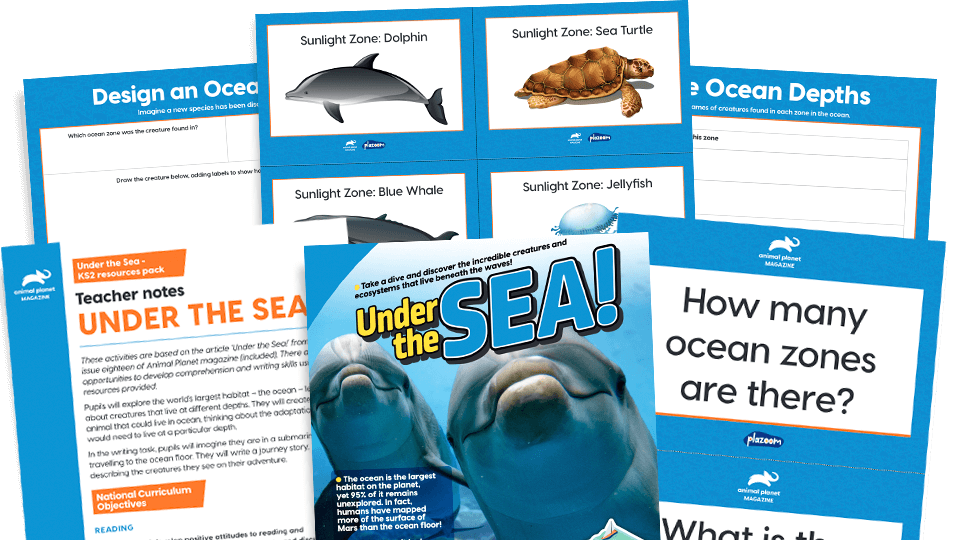
These free activities are based on an article from Animal Planet magazine (included in the download). There are opportunities to develop comprehension and writing skills using the resources provided.
Plastic recycling lesson plan
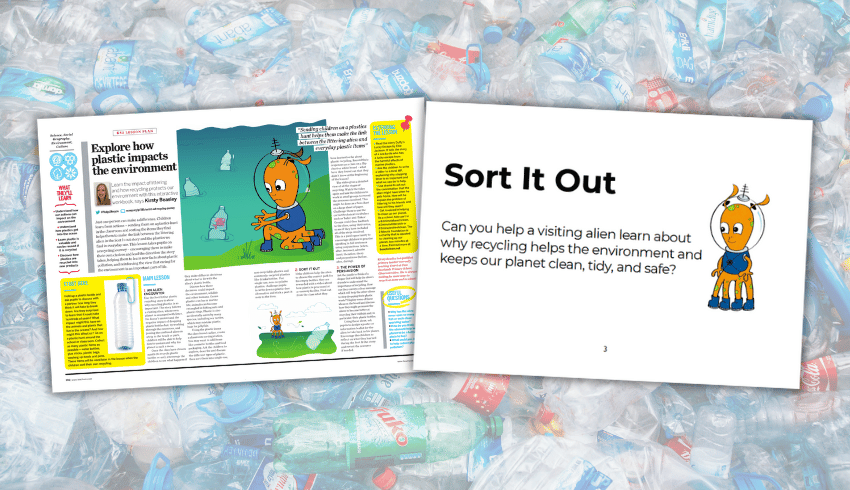
This free plastic recycling lesson plan teaches pupils new facts about plastic pollution and reinforces the view that caring for the environment is an important part of life. They’ll learn how plastics get into the ocean and the value of recycling plastic.
Flotsam book planning
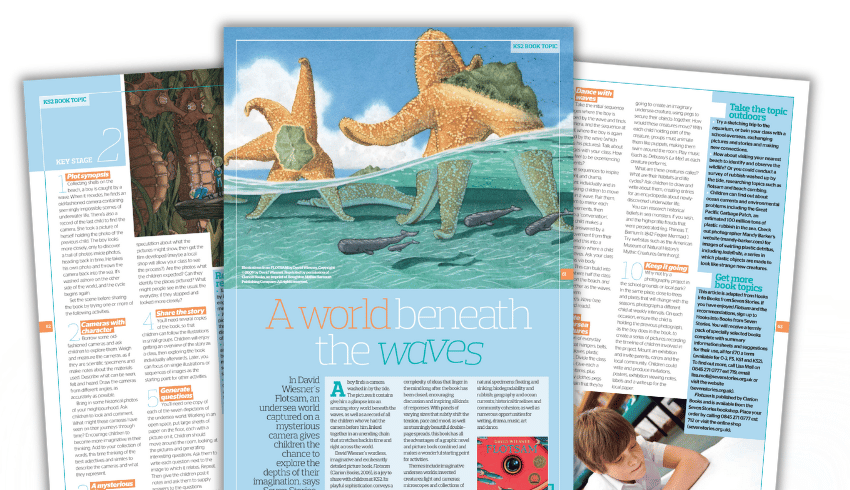
In David Wiesner’s Flotsam book, a boy finds a camera on a beach, which contains images of a fantastical underwater world of invented creatures.
This free PDF contains numerous ideas for writing, drama, music, art and dance, all linked to the book.
Books about the sea
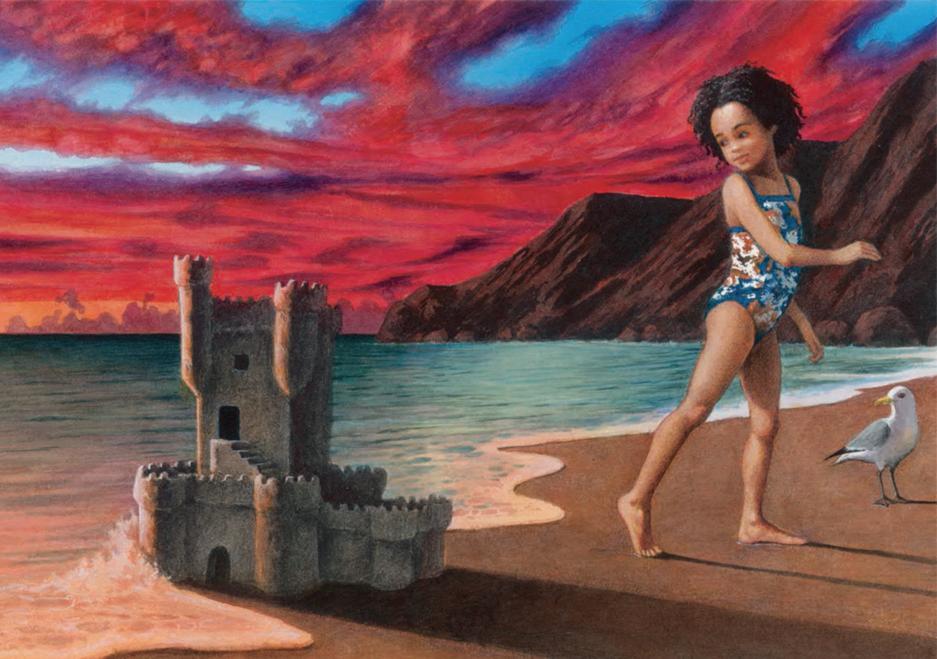
Inspire classroom creativity with our round-up of some of the very best books based on adventures at sea. Titles include:
- Sea of Dreams by Dennis Nolan
- Lost and Found by Oliver Jeffers
- Wave by Suzy Lee
The maths of plastic bags
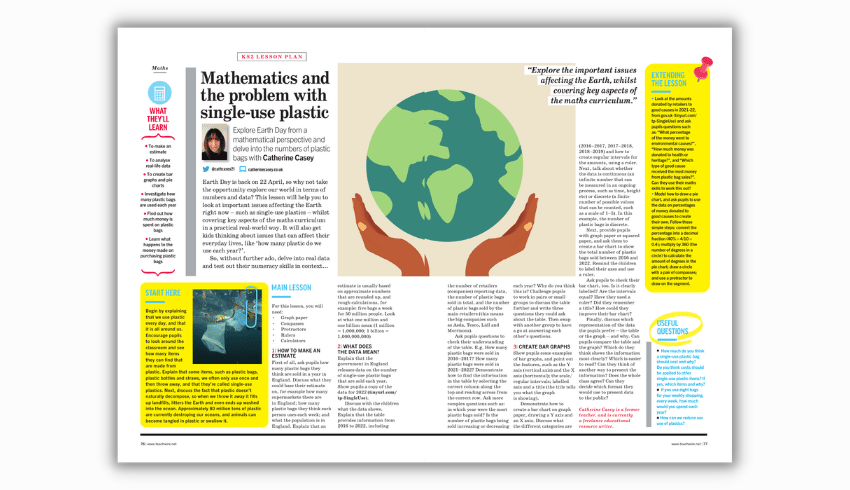
This free KS2 maths lesson plan investigates single-use plastics while also covering key aspects of the maths curriculum. Pupils will learn to analyse real-life data, create bar graphs and pie charts and more.
KS2 acrostic oceans poems
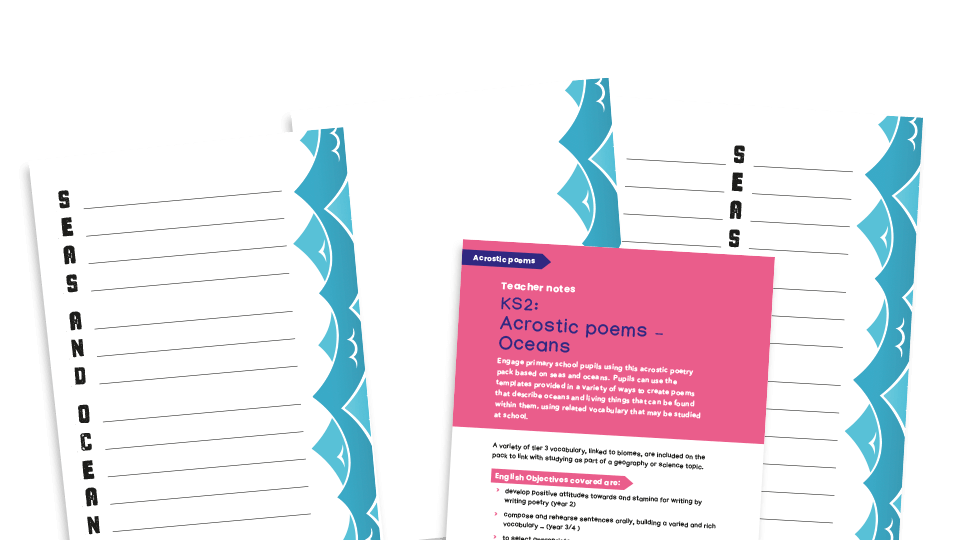
Engage primary school pupils using this acrostic poetry pack based on seas and oceans from literacy resources website Plazoom.
Pupils can use the templates provided in a variety of ways to create poems that describe oceans and living things that can be found within them.
Deep ocean comic book resource
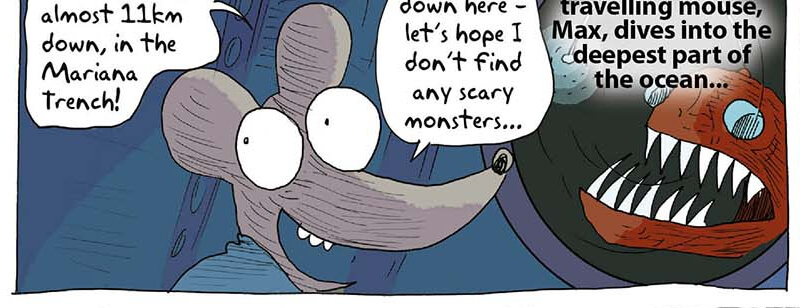
This primary resource from Nat Geo Kids introduces children to an environment very different from their own – the deep ocean ecosystem of the Mariana Trench, in the Pacific Ocean.
Discover more about this little-known environment – the deepest part of the ocean – using a fun, comic book-style resource.
What kinds of creatures live in the deepest part of the ocean? How was the Mariana Trench created? How have humans managed to explore this environment?
Ten ways to reuse plastic bottles
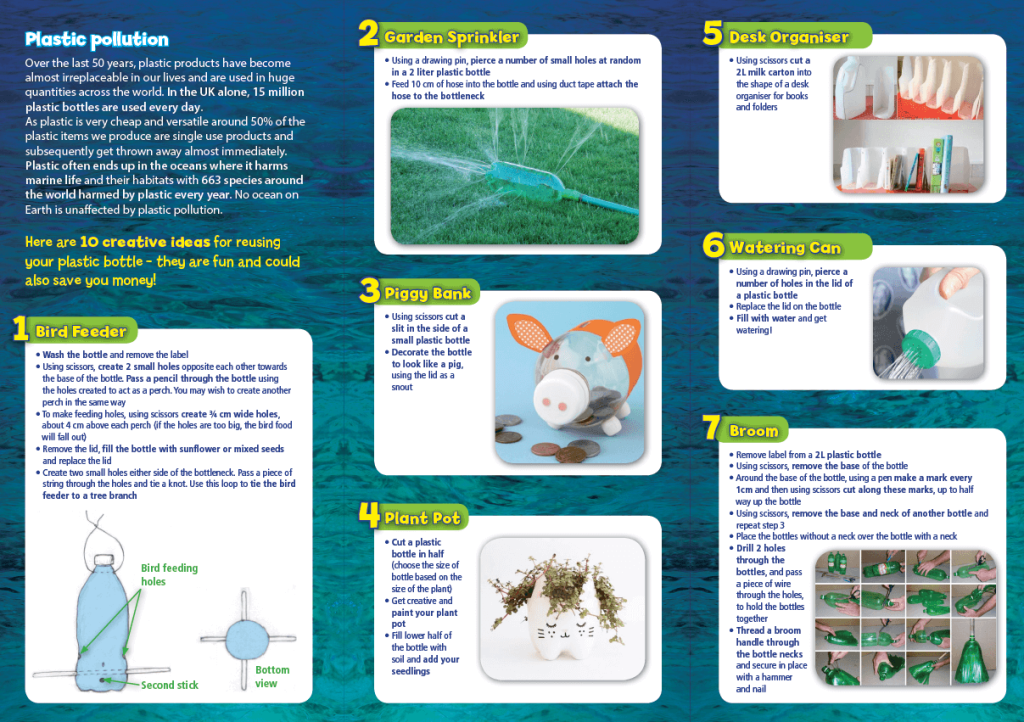
50% of the plastic items we produce are single-use products and get thrown away almost immediately.
Plastic often ends up in the oceans where it harms marine life and their habitats. Here are ten creative ideas for reusing plastic bottles.
Best school trips for World Ocean Day
- Walk in awe across Shark Walk, explore Atlantic Coasts, discover Ray Lagoon and stroll through an ocean tunnel at SEA LIFE London Aquarium
- Visit SEA LIFE Hunstanton in Norfolk and see an active seal rescue centre in action
- Sharkbait Reef, located at the Alton Towers Resort, consists of multiple immersive and hands-on learning experiences
- The Natural History Museum’s immersive Ocean Life and Habitat show highlights the importance of the oceans and demonstrates why it’s never been more vital to help protect this amazing habitat
How our ocean conservation curriculum has revolutionised our trust
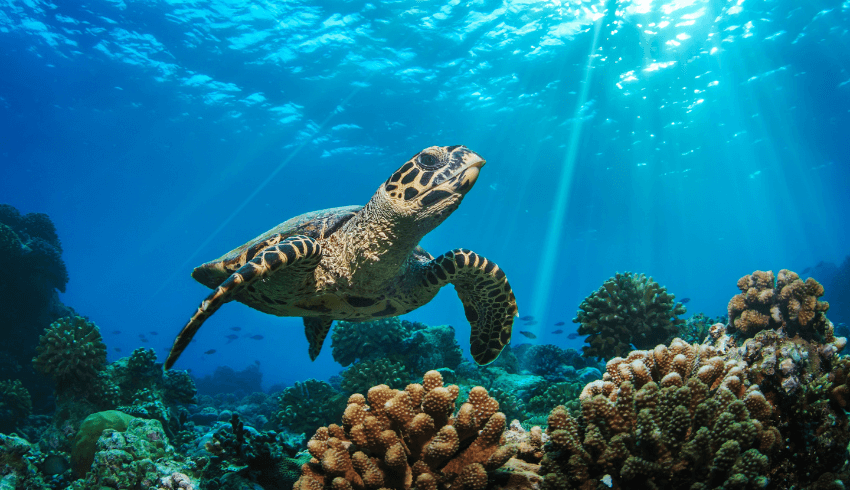
From bread fossils to an exposé on plastic, diving into a brand-new way to structure learning has revolutionised our trust, says Claire Hardisty…
When our CEO, Stuart Bellworthy, joined our Trust of five schools in 2018, he was keen to find a focus to unite staff and students in a common purpose across the primary curriculum.
We are based in Plymouth, Britain’s ocean city. We have several marine scientists on our teaching staff, and board-level links with the Ocean Conservation Trust and leading UK marine research institutions. So, our thinking quickly turned to the ocean.
We wanted to go further than studying the ocean within topic work, however; our vision was for marine learning and conservation to become a key driver for the curriculum.
The ocean lends itself to cross-curricular activities in English, art, geography, science and history. For example, this may involve understanding the water cycle in science, or exploring paintings of the sea in art. Or in history, children may look at seasides past and present and, location permitting, undertake a beach visit.
Even in Plymouth, some of our children haven’t visited the sea. We felt a moral purpose to give them opportunities to widen their experiences and understanding. Particularly about the role of the ocean in protecting our planet’s future, and how individuals can make a difference.
So early in 2019, we embarked on creating a scheme of work. We started with content that could be embedded within the science and geography elements of the national curriculum.
In October 2022, we launched our new scheme of work through a CPD day at the National Marine Aquarium in Plymouth. Our Ocean Experts (scientists from local marine organisations) joined us and shared their knowledge through hands-on workshops. They even created a human wave machine!
Curriculum update
I co-opted another head and a lead teacher to forge the project with me. Our task was to develop a progressive scheme with age-appropriate, scientific rigour, and engaging teaching resources, while working collaboratively with staff to build it from the ground upwards.
We aimed to create the programme within two years. Firstly, we set up a working group that consisted of two ‘Ocean Champions’ from each school. These were teachers with ocean or science expertise.
We invited scientists to join us from the Ocean Conservation Trust, Marine Biological Association and Plymouth Marine Laboratories, whom we termed our ‘Ocean Experts’. They would provide scientific expertise and academic review.
We met regularly to share our progress, pitfalls, and discuss principles and timescales for the next stage of work. We soon developed working bonds as a team. Tea, biscuits and humour were all a very important part of this process!
The team also regularly reported back to our Trust Board, to keep trustees and members informed. It was important to have a strong foundation for our work. So, we decided to explore in more detail the seven principles of Ocean Literacy, adopted by UNESCO.
The National Marine Educators Association in the USA had developed a framework of objectives around this, which we used as a point of reference.
We decided that each unit of work would focus specifically on one of the ocean principles (excluding principles one and seven, which apply to every unit). Each school in the Trust would take responsibility for designing a unit for one principle.
Primary curriculum design
We agreed to design each unit for teaching across a double-year group. This allowed schools with children in mixed-age year groups, or with curriculum projects carefully mapped out, the flexibility to match units to their own circumstances.
I created a proforma for the designs, so that everyone would follow common guidelines. Over each two-year phase, we wanted to cover five units. Some would be ‘deep dives’ – short, focused units to be compressed into a few days; and some would be cross-curricular units, delivered over a few weeks and incorporating wider curriculum subjects.
We gave staff some release time to do this work, and attend online meetings. The Champions used their own knowledge, carried out research, and liaised with their Ocean Expert to explore the best ways to bring learning to life.
Staff trialled some of their ideas, checking in with pupils along the way. For instance, Year 6 made detailed cartoon flow charts illustrating the beginning of life and the role of phytoplankton. They then went on to do further work linking this to both their literacy unit and scientific explanations.
In science, teachers also explored the use of plastics, testing literacy with investigative journalism techniques.
We met regularly to take stock as a team, to keep us all on the same page, and make sure everyone’s workload was manageable.
Our lead teacher was given a half day per week to focus solely on writing up each unit, carrying out a residency in each school alongside the Champions, and then further fleshing out the units of work.
By Summer 2022, we had trialled several sections. Now in the final phase, our Ocean Experts are checking our science content and developing ‘teacher guides’ to help give staff the knowledge and confidence to teach each unit.
On reflection
Developing a whole new scheme of work for our Ocean Conservation Curriculum from the ground up, and in the midst of a pandemic, has not been easy.
To be honest, the process has been rather messy, (but that’s fine as the creative process is like that!), and we’re not quite finished yet.
We are still working through our expert sign-off on the scientific content, and the next step will be to publish our work in a form that we can share more widely.
Our Trust has now grown to eight schools, and the new additions are keen to embrace this work. In the five Plymouth schools, every child will undertake at least one of the units this academic year; next year, all eight schools will be delivering the scheme of work, so all our pupils will have equality of opportunity.
It’s too early for any hard evaluation, but already we have seen changes. We have all increased our awareness and understanding of how connected we are to our ocean, and it has galvanised our thinking on personal responsibility and sustainability.
Our children have an increased exposure to ocean studies and are acquiring a scientific approach and vocabulary from a very early age.
They too are becoming more aware of how their actions and choices can impact the future of our planet. After all, our children are our future.
What the kids say
Mason, Y4
“Making fossils out of slices of bread was the best thing – we pressed objects like model dinosaurs down into the bread, and then we could see next day how it had made the shape.”
Charlie, Y6
“I had no idea of all the places we can find plastics, and this [investigative] work has inspired me to become a journalist.”
Amber, Y6
“We have a responsibility to our children’s children. If we want them to be able to enjoy the ocean, we need to do something now.”
Claire Hardisty is headteacher at Thornbury Primary School, part of Connect Academy Trust in Plymouth and Torbay, and is a driving force behind the UK’s first Ocean Conservation Curriculum for primary children. To find out more about the ocean curriculum, please visit connectacademytrust.co.uk, email admin@connectacademytrust.co.uk or call 01752 790990.
Why the ocean needs to be on the curriculum
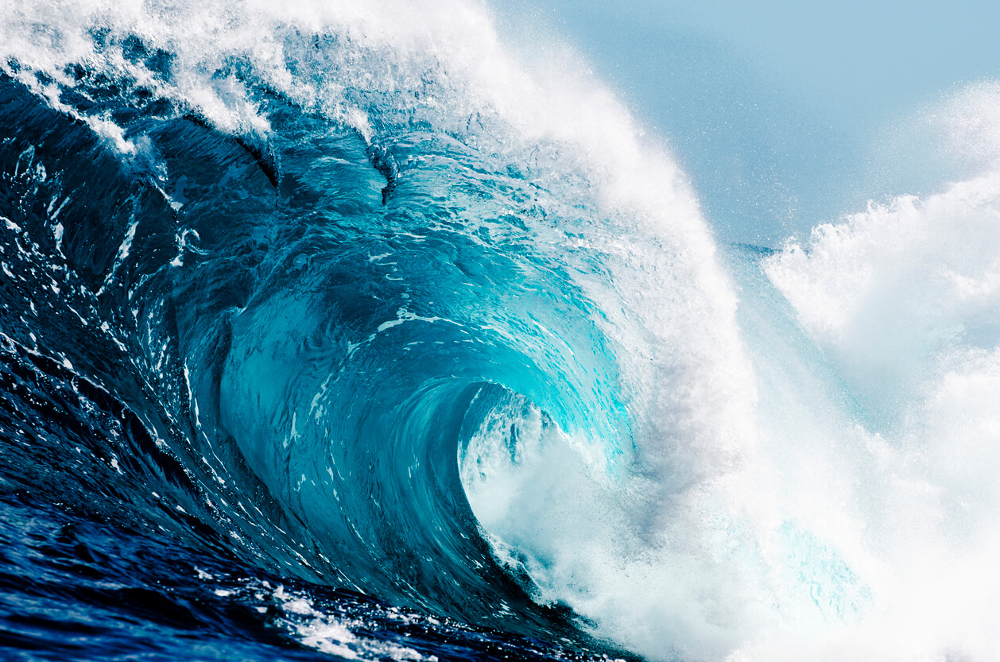
Nicola Bridge implores the government to look at ways of supporting teachers to deliver marine elements across the curriculum in the future…
When I was around four years old, I remember spending a family holiday on the beach in Devon. We spent days exploring the plethora of life that lives within the rockpools. I was fascinated with the diversity of life that we found there.
There are photographs of me bobbing around in the water that I don’t even remember being taken. From that first memory, I knew that there was something special about the ocean. I now know this to be certain.
Making up 90% of the living space on this planet and providing half of the oxygen we breathe, each and every day, we quite literally need the ocean to survive.
It shapes the features of the earth and makes it liveable. And it connects every single one of us, wherever in the world we are.
No ocean learning
In the UK and many other countries across the world, young people can go through their entire school lives without learning about topics relating to the ocean.
The UK is a maritime nation and a global leader in marine science, ocean-related teaching. The ocean should be an essential part of the core curriculum offering. This is especially so in a time where we are experiencing a climate change crisis that is having a worrying impact.
“Ocean-related teaching should be an essential part of the core curriculum offering”
In our modern world, there is a lack of understanding about the ways in which the ocean supports all life on earth and how vital it is for our future survival on this planet. That is something that I believe needs to change, fast.
Teaching the next generation
School children are the next generation. They will depend on the ocean to survive as much as we do today. So why are we, as a nation, yet to see the importance of educating them about it?
By helping them to better understand their connection to the ocean, and their influence on it, as well as its influence on them, we can empower them to take steps that will help to safeguard their own futures. And who wouldn’t want to be given that opportunity while there is still time to take action?
Creating an ocean-literate nation will ensure that the younger generation can choose to live their lives in ways that will help to secure their futures – and our planet’s, too. We can do that by exposing them to ocean concepts from an early age in schools.
Children who are ocean-literate are more likely to adopt pro-ocean behaviours, making small adjustments within their own lives to minimise their environmental impact – ultimately, ensuring a healthier ocean for the benefit and enjoyment of all.
Other benefits
There are a wealth of other benefits of embedding the marine environment into the curriculum, too; from the wide field of marine-related careers it will open up, to the inspiration and sense of creativity that students will gain from engaging with the awe of ocean habitats and animals.
A connection to the ocean has also been shown to positively influence an individual’s mental and physical wellbeing.
At the Ocean Conservation Trust, we believe that the addition of ocean elements to the national curriculum at the next reform is of the utmost importance, and would implore you, the DfE, and other statutory bodies to look at ways of supporting teachers to deliver marine elements across the curriculum in the future.
Cross-curricular appeal
There are so many ways that the beauty, geography, history and science of the ocean can inspire and engage students at all levels and across all curriculum subjects, and there are a wide variety of resources available to teachers online and by interacting with organisations such as the Ocean Conservation Trust.
A UK-based teacher survey showed that there is huge willingness from teachers to help children learn about the ocean, and many coastal schools ensure that they interpret the curriculum to ensure that their students get to learn about it.
However, we are all connected to the ocean, however far we live from it, so there is much work to be done to ensure that it becomes a topic taught in all schools across the country – and that no child finishes their school career without being ocean literate.
Nicola Bridge is head of conservation education and communication at Ocean Conservation Trust.







